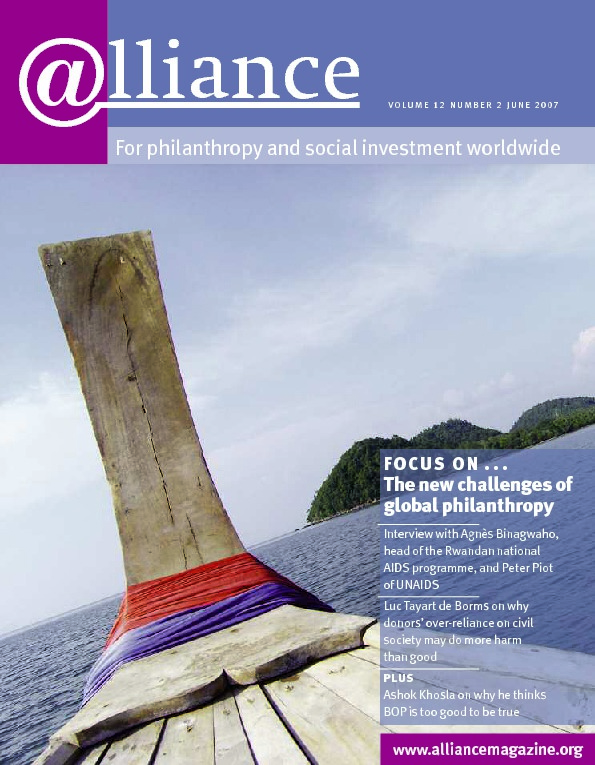Among the many difficult ethical questions that arise in modern philanthropy, one seems to appear with increasing frequency, the issue of ‘tainted money’. This actually has to do with a very old quandary in the philanthropic world – is it morally justifiable to accept philanthropic donations that fall under any of three conditions:
· they have suspect origins;
· they are given with manipulative motives, or
· they potentially benefit the donor more than the recipient?
These questions have been around since the earliest gifts were made, but became especially prominent during the Middle Ages when charitable donations were often made with the explicit purpose of shortening one’s time in purgatory.
This issue arose in a dramatic way recently at Stanford University (in the interest of full disclosure, I teach there) when an influential donor, Steven Bing, withdrew his promised $2.5 million gift to the university after seeing a television ad in which Exxon Mobil, which has had some very bad press about its environmental practices, proclaimed its concern for the earth by announcing that it ‘has teamed up with Stanford University to find breakthrough technologies that deliver more energy while reducing greenhouse gas emissions’.
The ad campaign was based on a 2002 commitment to Stanford by Exxon Mobil under which the university will receive a grant of up to $100 million over ten years to support climate and energy research.
Bing’s protest action raises a host of interesting ethical issues about giving and receiving:
· Does the source of the funds matter in receiving donated funds? As long as the money is legally earned, should one have ethical concerns about its origins? (Many have pointed out that the money behind such venerable foundations as Carnegie and Rockefeller had its own questionable origins, leading some wag to observe that the only trouble with tainted money is that it ‘t’aint enough’.)
· Do the further actions of the donor (outside legally prohibited direct quid pro quo benefits) in conjunction with a gift make a difference? Specifically, does Exxon Mobil’s PR campaign cross a line? One critic, Jennifer Washburn, worries that ‘Stanford is allowing its academic brand name to be distorted by its outside relationship with corporate donors’.
· How close can charitable organizations and corporate (or other) funders get before the charitable organizations are seen to be selling their good names to burnish the sometimes tarnished images of funders?
For my part, I admire the willingness of Bing to stand up for a moral principle and to object to the erosion of the image of the university, which by extension potentially erodes the overall image of the non-profit sector. Derek Bok, the former president of Harvard, expresses the same worry about corporate exploitation of universities in his incisive little book, Universities in the Marketplace: The commercialization of higher education.
At the same time, Bing’s action raises another difficult issue: how far should any one donor be able to influence the behaviour of an independent non-profit organization with his own moral view? In this case, how much should Bing’s view weigh in steering university policy?
In the end, the ethical quality of a gift is probably best judged, as with most things in life, against a spectrum of moral possibilities – in this case a spectrum that extends from crass, exploitative self-interest (such as some of Enron’s infamous philanthropic gifts), at one end, to pure altruism (such as an anonymous bequest), at the other – rather than against the standard of a single bright line.
After all, almost every philanthropic contribution contains some measure of self-interest, if it is only towards the improvement of a world that presumably includes oneself. But using a grant to a well-regarded non-profit to sanitize a corporate image seems to move into that dark area that casts a shadow over the entire non-profit sector.
Bruce Sievers is a Visiting Scholar at Stanford University and former Executive Director of the Walter and Elise Haas Fund. Email brsievers@onemain.com



Comments (0)